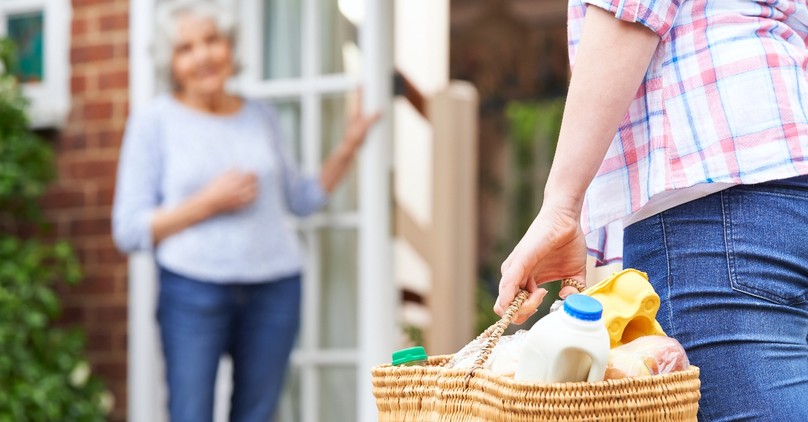
Discover the profound benefits of weaving kindness and gratitude into your daily life, from enhancing emotional and physical well-being to strengthening relationships and fostering a more empathetic society. This guide offers practical, actionable steps and weekly challenges to cultivate a habit of kindness, inspiring a ripple effect that can transform both your own life and the world around you.
One of my favorite things to read about online is random acts of kindness and positive news. I subscribe to one or two newsletters with these kinds of stories, and they are always a bright spot in my day. This season of gratitude and thanksgiving is the perfect time to do some random acts of kindness.
Introduction: The Power of Kindness and Gratitude
In a world where bad news and negativity reign, kindness and gratitude are powerful forces. A random act of kindness or expressing gratitude doesn’t have to be a big, grandiose gesture. Smiling at a stranger, complimenting a retail worker, or thanking your barista for getting your order right, instead of just taking it and leaving, are small ways to spread positivity into the world.
Random acts of kindness evoke a sense of euphoria, which is associated with increased happiness and lower stress levels. Doing random acts of kindness helps us.
- Enhance emotional well-being: Consistently practicing acts of kindness helps boost your mood and reduces feelings of anxiety and depression. These acts release oxytocin, which fosters feelings of connection and trust.
- Strengthened relationships: Acts of kindness can lead to deeper bonds. Regardless of whether you’re doing it for a family member, friend, a stranger, or in your community, it fosters social connections by promoting an atmosphere of mutual respect and support.
- Physical health benefits: Being kind to others is beneficial for our health, leading to lower blood pressure, reduced levels of chronic pain, and a lower likelihood of experiencing serious health issues, such as cardiovascular disease.
We also get benefits from being grateful, like;
- Improved mental health: Regularly expressing gratitude helps reduce anxiety and depression. Keeping a gratitude journal and writing what you are thankful for leads to higher levels of happiness and life satisfaction.
- Enhanced resilience: Being grateful helps us cope with challenging situations more effectively. By focusing on what we have and appreciate, we can navigate difficult situations with hope.
- Increased Pro-Socialization: Grateful Individuals are more likely to engage in prosocial behaviors, such as volunteering, helping others, and showing empathy.
Week 1: Small Acts of Kindness to Spark Joy
Start the month by doing some minor acts of kindness during the first week.
- Compliment a stranger
- Write a thank-you note.
- Please pay it forward.
- Volunteer your time (even if it’s only two or three hours)
- Do a random act at work.
- Create a kindness kit: Gather items such as snacks, hygiene products, and small toys, and then write a note to include in each kit. Then deliver them to local shelters, hospitals, community centers, or even to homeless people you see on the streets.
- Surprise your child: Take them for an ice cream cone, hot chocolate, or to pick out something else special they would like to have.
- Compliment a retail worker: The next time you visit a store, take a moment to compliment your cashier, deli clerk, or stocker. These individuals work diligently to ensure that you have a pleasant shopping experience.
Week 2: Gratitude Journaling - Reflecting on the Positives
During week two, start a gratitude journal and reflect on the positive things in your life. Don’t forget to be specific.
- What God has done, is doing, and will do for you. Reflect on all the ways God has been faithful in your life.
- Family relationships you are thankful for.
- Personal achievements: What are you thankful for that God has helped you achieve?
- Simple pleasures: Electricity, running water, a roof over your head.
- Friends: Think about all of your friends and write what you are thankful for regarding each person.
- Your health: Write what you are thankful for with your health.
- Your talents: Reflect on the things that make you unique and the skills you possess, and thank God for them.
- Pets: Think about how grateful you are for your pets and their companionship. Ask the Lord to please bless them and keep you healthy.
Week 3: Community Engagement - Spreading Thanks Beyond Yourself
This week, consider engaging in community service and spreading gratitude beyond yourself, your friends, and your family.
- Volunteer your time
- Support local businesses
- Organize a community event.
- Start a ‘thank you’ campaign: Encourage people in your community to express their gratitude through notes, social media posts, and community boards. Give a thank-you note to your child’s teacher, post on social media about the helpful clerk at the store, or post on your apartment complex’s community board about how great the office or maintenance staff are.
- Volunteer to mentor or tutor someone.
- Join a community group.
- Buy a meal for a homeless person.
- Donate to your favorite charity.
Week 4: Daily Challenges to Cultivate a Kind Heart
This week, make it a point to do something each day to cultivate a kind heart.
- Write a kind note
- Practice active listening
- Do more random acts of kindness
- Do something kind for yourself
- Have a conversation about kindness with a family member
- Help someone
- Buy something to donate to charity
- Buy some gift cards and load them with $5-$10, and pass them out to strangers
Incorporating Kindness into Your Daily Routine
We live in a world where negativity and competition are the norm, so incorporating kindness into our daily routine can feel like a breath of fresh air. We need to be kind not only to others, but also to ourselves.
Ways to Be Kind to Ourselves
- Positive affirmations: Start your day with a positive thought.
- Mindfulness or meditation: Take some time to practice mindfulness or meditate on the Lord.
- Journal: Write five things you appreciate every day.
Ways to Be Kind to Family and Friends
- Acts of service
- Compliments
- Listening actively
Ways to Be Kind at Work
- Write a thank-you note to your boss or a colleague
- Celebrate your coworkers' wins
- Offer support to a coworker who is struggling
Kindness on Social Media
- Share positive content
- Celebrate an accomplishment, event, or milestone in a friend’s life
- Create an online support group for X.
- Appreciation posts
Sharing Your Kindness Journey on Social Media
People love positive content, so share your kindness journey on social media. It doesn’t have to be perfect; people will appreciate your honesty if something doesn’t work out as you planned. You may even inspire others to embark on their own journey of kindness.
The Ripple Effect: How Kindness Inspires Others
We’ve all seen it online or heard about it on the news. One minor act sets off a chain reaction of kindness. When we attempt to make kindness a normal behavior, we can create change in society. Random acts of kindness have the following effects:
- Stronger Communities: Acts of kindness can break down barriers and foster social cohesion, which promotes a sense of belonging. People are more apt to volunteer, get involved in their communities, and support one another when they feel cared for.
- Cultivating Empathy: Kindness promotes understanding and empathy, making everyone feel understood. It’s a reminder of our shared humanity.
- Positive work environments: When companies foster positive work environments, employee morale and productivity increase, turnover decreases, and job satisfaction rises.
Overcoming Obstacles: Making Kindness a Habit
Making kindness a habit can be hard at first. Here are some common obstacles people have to overcome;
- Mindset and attitudes
- Time constraints
- Fear of rejection or misinterpretation
- Cultural and social norms
- Burnout and emotional exhaustion
Strategies to Make It a Habit
- Start small
- Create reminders and set goals
- Cultivate gratitude
- Reflect on your acts of kindness
- Seek role models
- Join or create community initiatives
- Practice self-compassion
- Make it a family activity
Embracing a Lifestyle of Gratitude and Kindness
There are many benefits to embracing a lifestyle of gratitude and kindness. Things like better health, strengthened relationships, and better emotional well-being for ourselves, and helping and making other people’s day. This may not come naturally at first, but the harder you work at making it a habit, the better the world will be for all of us.
Photo Credit: ©iStock/Getty Images Plus/Highwaystarz-Photography









